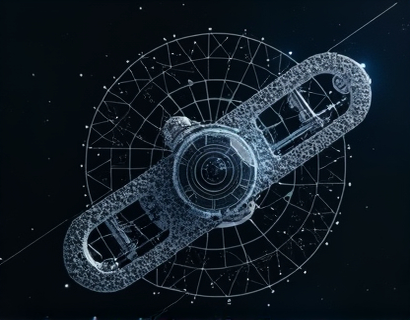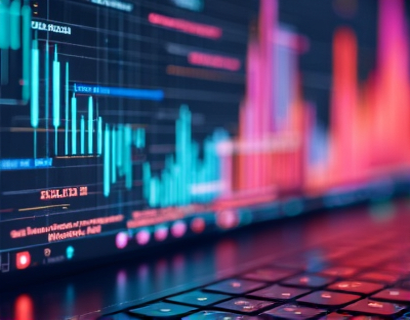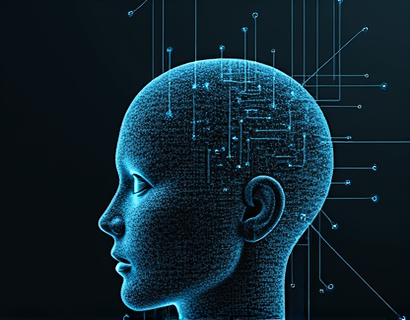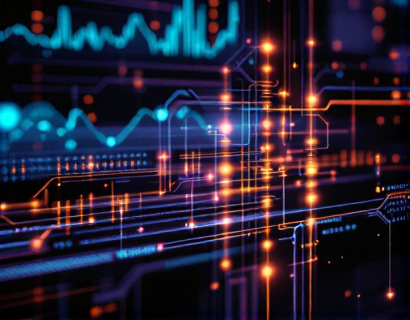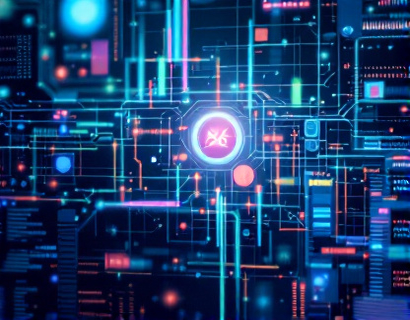Decentralized Organization Dynamics: Mastering the Software Stack for Universal Governance and Efficiency
In the rapidly evolving landscape of digital governance and decentralized systems, the concept of universal decentralized organizations has gained significant traction. These organizations leverage advanced software to redefine traditional structures, enhancing governance, collaboration, transparency, and efficiency. This guide delves into the intricacies of how sophisticated software can transform the creation and operation of decentralized organizations, providing a comprehensive resource for enthusiasts and professionals alike.
Understanding Decentralized Organizations
Decentralized organizations, often built on blockchain technology, operate without a central authority. Instead, they rely on a network of nodes to maintain and validate transactions or data. This decentralized nature ensures that no single entity has control, promoting a more democratic and resilient system. The software stack plays a crucial role in facilitating these operations, enabling seamless interactions among various components of the organization.
The Role of Software in Decentralized Governance
Effective governance in decentralized organizations hinges on robust software solutions. These solutions must support key functions such as decision-making, voting, and rule enforcement. Smart contracts, self-executing contracts with the terms directly written into code, are pivotal in this context. They automate and enforce agreements, reducing the need for intermediaries and increasing trust among participants.
Blockchain-based governance platforms provide a transparent and immutable record of all transactions and decisions. This transparency is crucial for building trust and accountability within the organization. For instance, a decentralized autonomous organization (DAO) can use smart contracts to manage fund distributions, proposal voting, and membership management, all while maintaining a public ledger of activities.
Enhancing Collaboration Through Decentralized Tools
Collaboration is a cornerstone of successful decentralized organizations. Advanced software tools facilitate communication, project management, and resource sharing among distributed teams. Platforms that integrate decentralized identity management and access control ensure that only authorized members can participate in specific activities, maintaining security and privacy.
Decentralized communication protocols, such as those based on Web3 standards, enable real-time collaboration without relying on centralized servers. These protocols support features like decentralized messaging, file sharing, and collaborative document editing, all while ensuring data integrity and user privacy. By leveraging these tools, decentralized organizations can operate efficiently, regardless of the geographical dispersion of their members.
Ensuring Transparency and Accountability
Transparency is a fundamental principle of decentralized organizations. The software stack must support mechanisms that allow all participants to view and verify the organization's activities. Blockchain's inherent transparency is leveraged to create an immutable and auditable trail of all transactions and decisions. This transparency extends to financial operations, governance processes, and project progress, fostering trust and accountability.
Decentralized analytics tools can further enhance transparency by providing real-time insights into the organization's performance. These tools can aggregate and analyze data from various sources, offering a comprehensive view of the organization's activities. For example, a decentralized finance (DeFi) platform can use analytics to track transaction volumes, user engagement, and financial health, enabling data-driven decision-making.
Optimizing Efficiency with Automated Processes
Efficiency is critical for the sustainability and growth of decentralized organizations. Automation plays a vital role in streamlining operations and reducing manual overhead. By automating routine tasks such as data entry, report generation, and compliance checks, organizations can allocate resources more effectively and focus on strategic initiatives.
Orchestration tools that manage and coordinate various decentralized services ensure smooth operation. These tools can automate workflows, trigger actions based on predefined conditions, and monitor system health. For instance, an orchestration platform can automate the deployment of smart contracts, manage token distributions, and handle user onboarding processes, all while minimizing human intervention.
Scalability and Interoperability
As decentralized organizations grow, scalability becomes a significant concern. The software stack must support high transaction throughput and low latency to handle increasing loads. Layer 2 solutions, such as state channels and sidechains, can significantly enhance scalability by processing transactions off the main blockchain and settling them in batches.
Interoperability is another crucial aspect, enabling different decentralized systems to communicate and exchange value seamlessly. Cross-chain protocols and standardized interfaces facilitate interaction between various blockchain networks, allowing for a more interconnected and efficient ecosystem. This interoperability is essential for building universal decentralized organizations that can integrate multiple services and platforms.
Security and Resilience
Security is paramount in decentralized organizations, where the absence of a central authority means there is no single point of failure to fall back on. The software stack must incorporate robust security measures to protect against various threats, including smart contract vulnerabilities, phishing attacks, and 51% attacks.
Formal verification and auditing of smart contracts ensure that they function as intended and are free from critical bugs. Continuous monitoring and threat detection systems help identify and mitigate potential security risks in real-time. Additionally, decentralized identity management systems provide users with control over their personal data, enhancing privacy and security.
Case Studies and Real-World Applications
Several projects have successfully implemented advanced software stacks to build universal decentralized organizations. One notable example is a decentralized market place that uses a combination of smart contracts, decentralized identity, and interoperability protocols to facilitate secure and transparent trading. This platform allows buyers and sellers from different blockchain networks to interact, exchange assets, and manage transactions without intermediaries.
Another example is a decentralized governance platform for a community-driven project. This platform uses a token-based voting system, transparent proposal management, and real-time analytics to engage and empower the community. The software stack ensures that all governance activities are recorded on the blockchain, providing an immutable and verifiable history of decisions and actions.
Future Trends and Innovations
The landscape of decentralized organizations is continually evolving, with new technologies and innovations emerging regularly. One promising area is the integration of artificial intelligence (AI) and machine learning (ML) into decentralized systems. AI can enhance decision-making processes by analyzing large datasets and providing insights that inform governance and strategic planning.
Another trend is the development of user-friendly interfaces and tools that lower the barrier to entry for non-technical users. By making decentralized technologies more accessible, these tools can broaden participation and foster a more inclusive ecosystem. Additionally, the rise of decentralized cloud computing and storage solutions is set to further enhance the scalability and efficiency of decentralized organizations.
Conclusion
Mastering the software stack is essential for building and operating successful universal decentralized organizations. By leveraging advanced technologies such as smart contracts, decentralized identity, interoperability protocols, and automation tools, organizations can achieve enhanced governance, collaboration, transparency, and efficiency. As the field continues to evolve, embracing these innovations will be key to unlocking the full potential of decentralized systems.










